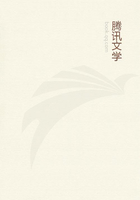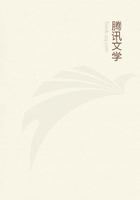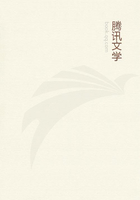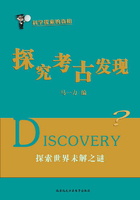There remains to be discussed the question whether the happiness of the individual is the same as that of the state, or different. Here again there can be no doubt- no one denies that they are the same. For those who hold that the well-being of the individual consists in his wealth, also think that riches make the happiness of the whole state, and those who value most highly the life of a tyrant deem that city the happiest which rules over the greatest number; while they who approve an individual for his virtue say that the more virtuous a city is, the happier it is. Two points here present themselves for consideration: first (1), which is the more eligible life, that of a citizen who is a member of a state, or that of an alien who has no political ties; and again (2), which is the best form of constitution or the best condition of a state, either on the supposition that political privileges are desirable for all, or for a majority only? Since the good of the state and not of the individual is the proper subject of political thought and speculation, and we are engaged in a political discussion, while the first of these two points has a secondary interest for us, the latter will be the main subject of our inquiry.
Now it is evident that the form of government is best in which every man, whoever he is, can act best and live happily. But even those who agree in thinking that the life of virtue is the most eligible raise a question, whether the life of business and politics is or is not more eligible than one which is wholly independent of external goods, I mean than a contemplative life, which by some is maintained to be the only one worthy of a philosopher. For these two lives- the life of the philosopher and the life of the statesman- appear to have been preferred by those who have been most keen in the pursuit of virtue, both in our own and in other ages. Which is the better is a question of no small moment; for the wise man, like the wise state, will necessarily regulate his life according to the best end. There are some who think that while a despotic rule over others is the greatest injustice, to exercise a constitutional rule over them, even though not unjust, is a great impediment to a man's individual wellbeing. Others take an opposite view; they maintain that the true life of man is the practical and political, and that every virtue admits of being practiced, quite as much by statesmen and rulers as by private individuals. Others, again, are of opinion that arbitrary and tyrannical rule alone consists with happiness; indeed, in some states the entire aim both of the laws and of the constitution is to give men despotic power over their neighbors. And, therefore, although in most cities the laws may be said generally to be in a chaotic state, still, if they aim at anything, they aim at the maintenance of power: thus in Lacedaemon and Crete the system of education and the greater part of the of the laws are framed with a view to war. And in all nations which are able to gratify their ambition military power is held in esteem, for example among the Scythians and Persians and Thracians and Celts.
In some nations there are even laws tending to stimulate the warlike virtues, as at Carthage, where we are told that men obtain the honor of wearing as many armlets as they have served campaigns. There was once a law in Macedonia that he who had not killed an enemy should wear a halter, and among the Scythians no one who had not slain his man was allowed to drink out of the cup which was handed round at a certain feast. Among the Iberians, a warlike nation, the number of enemies whom a man has slain is indicated by the number of obelisks which are fixed in the earth round his tomb; and there are numerous practices among other nations of a like kind, some of them established by law and others by custom. Yet to a reflecting mind it must appear very strange that the statesman should be always considering how he can dominate and tyrannize over others, whether they will or not.
How can that which is not even lawful be the business of the statesman or the legislator? Unlawful it certainly is to rule without regard to justice, for there may be might where there is no right. The other arts and sciences offer no parallel a physician is not expected to persuade or coerce his patients, nor a pilot the passengers in his ship. Yet most men appear to think that the art of despotic government is statesmanship, and what men affirm to be unjust and inexpedient in their own case they are not ashamed of practicing towards others; they demand just rule for themselves, but where other men are concerned they care nothing about it. Such behavior is irrational; unless the one party is, and the other is not, born to serve, in which case men have a right to command, not indeed all their fellows, but only those who are intended to be subjects; just as we ought not to hunt mankind, whether for food or sacrifice, but only the animals which may be hunted for food or sacrifice, this is to say, such wild animals as are eatable. And surely there may be a city happy in isolation, which we will assume to be well-governed (for it is quite possible that a city thus isolated might be well-administered and have good laws); but such a city would not be constituted with any view to war or the conquest of enemies- all that sort of thing must be excluded. Hence we see very plainly that warlike pursuits, although generally to be deemed honorable, are not the supreme end of all things, but only means. And the good lawgiver should inquire how states and races of men and communities may participate in a good life, and in the happiness which is attainable by them. His enactments will not be always the same; and where there are neighbors he will have to see what sort of studies should be practiced in relation to their several characters, or how the measures appropriate in relation to each are to be adopted. The end at which the best form of government should aim may be properly made a matter of future consideration.















